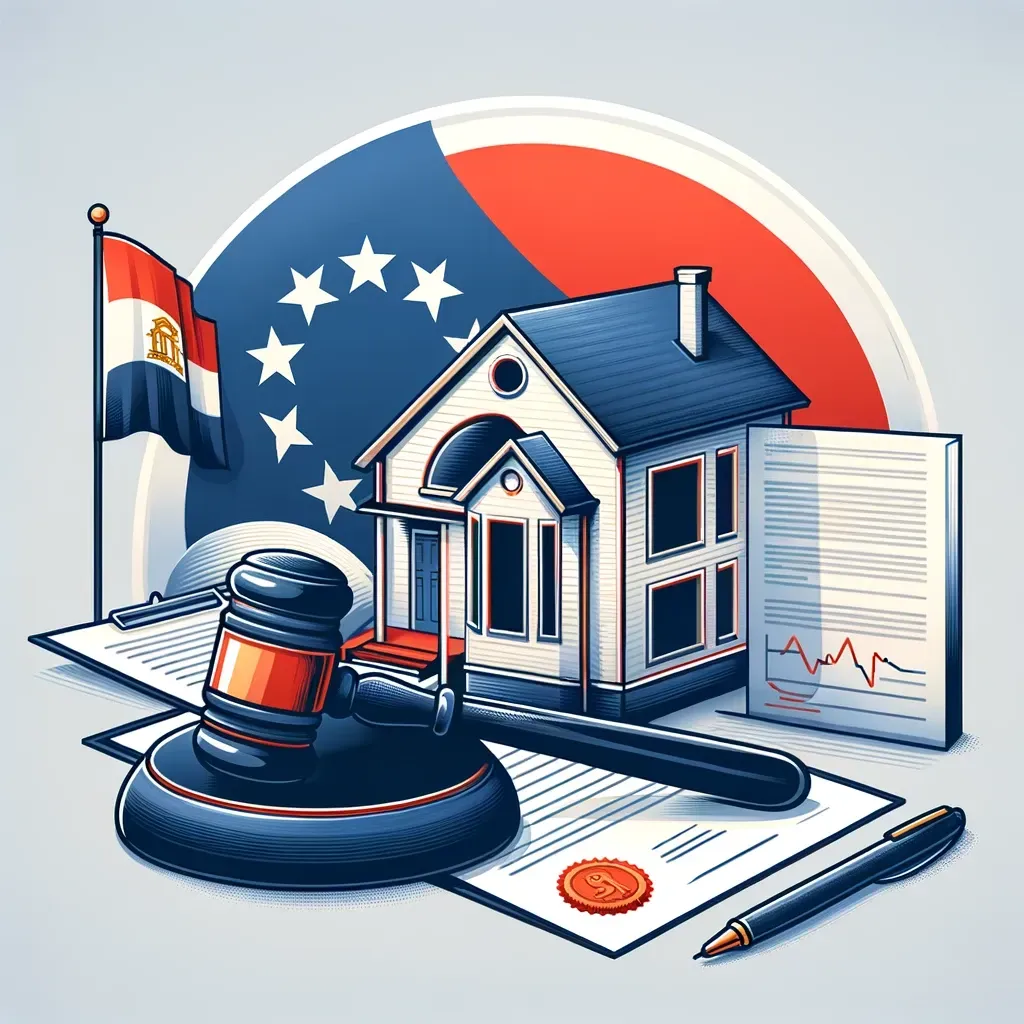
Understanding Georgia's Foreclosure Laws and Processes
Foreclosure is a daunting process for any homeowner. In Georgia, understanding the specific foreclosure laws and procedures is crucial for navigating this challenging time. This article aims to provide a comprehensive overview of Georgia's foreclosure process, highlighting homeowner rights, and outlining the steps involved.
Pre-foreclosure in Georgia: The Initial Phase
Understanding Your Rights
Before diving into the foreclosure process, it's important to recognize the rights you have as a homeowner. In Georgia, homeowners are entitled to certain protections, including receiving a preforeclosure breach letter, applying for loss mitigation, and getting current on the loan to stop the foreclosure sale. These rights are designed to provide a buffer against immediate foreclosure and offer opportunities to remedy the situation. For detailed information on homeowner rights in Georgia, Nolo offers a comprehensive guide.
The Importance of the Pre-foreclosure Notice
During the preforeclosure stage, homeowners typically receive a breach letter. This notice is a formal acknowledgment of the payment default and serves as a warning before the foreclosure process officially begins. It’s a critical time for homeowners to explore options to avoid foreclosure.
The Foreclosure Process in Georgia
Judicial vs. Nonjudicial Foreclosure
Georgia allows for both judicial and nonjudicial foreclosures. A judicial foreclosure involves the court system and is initiated by the lender filing a lawsuit. In contrast, nonjudicial foreclosure, more common in Georgia, is quicker and involves out-of-court procedures. For an in-depth look into these processes, atlantaattorneysatlaw.com provides valuable insights.
Notice of Intent to Foreclose
A critical step in Georgia's nonjudicial foreclosure process is the Notice of Intent to Foreclose. This notice, sent at least 30 days before the scheduled sale, informs the homeowner of the impending foreclosure. It includes crucial information like the name and contact details of the entity with authority to negotiate the mortgage terms.
Foreclosure Sale Procedures
In Georgia, foreclosure sales are typically conducted on the first Tuesday of each month at the county courthouse. The GeorgiaLegalAid.org brochure offers more details on these sales, including the legal holidays that might affect scheduling.
Post-Foreclosure: Understanding Your Options
Loan Reinstatement and Redemption
While Georgia law does not provide a statutory right to reinstate a loan prior to sale, certain loan agreements might offer this option. It’s crucial to review your loan documents to understand your rights regarding reinstatement. Redemption, or paying off the full loan amount before sale, is another potential avenue to stop foreclosure. However, Georgia law does not typically offer a redemption period post-sale.
Bankruptcy as a Foreclosure Alternative
Filing for bankruptcy can be a viable option for halting foreclosure proceedings. Under bankruptcy protection, an automatic stay is placed, temporarily preventing lenders from foreclosing on your home. This can provide valuable time to reorganize finances or explore other solutions.
Frequently Asked Questions
Q: What is the most common type of foreclosure process in Georgia?
A: Nonjudicial foreclosure is the most common in Georgia, as it is quicker and less expensive than judicial foreclosure.
Q: Can I reinstate my loan before a foreclosure sale in Georgia?
A: While there's no statutory right for reinstatement in Georgia, your loan agreement might provide this option. Check your loan documents for specific terms.
Q: What happens if I file for bankruptcy during the foreclosure process?
A: Filing for bankruptcy can temporarily halt the foreclosure process due to the automatic stay. It allows homeowners to explore other options to manage their mortgage obligations.
Conclusion
Navigating the foreclosure process in Georgia can be complex, but understanding your rights and the steps involved can make a significant difference. Homeowners facing foreclosure should actively seek information and consider all available options, including loan modification, short sales, and even bankruptcy.
If you're facing foreclosure in Georgia, it's advisable to consult with a foreclosure attorney or a HUD-approved housing counselor to explore your legal options and rights.
